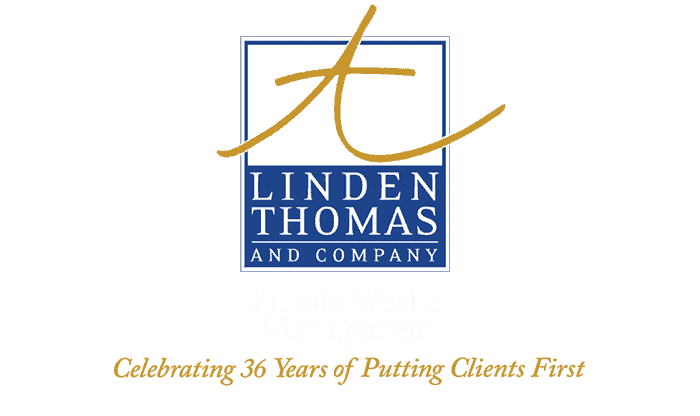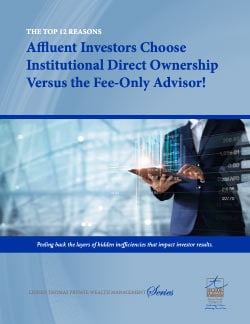Why We're Different than Traditional Advisors (What the Industry Doesn't Tell You).
There are generally four types of investment advisors within the financial industry; and more often than not, investors seldom know what kind of advisor they have or how to tell if the approach of their advisor is in their best interest.
The four types of advisors are as follows:
Retail Advisors (Firm Advisors)
Retail Advisors are typically employed by big investment houses or banks. They often have a securities license that allows them to sell securities or charge a fee. Because they are employees of a bigger firm, they seldom employ a staff of their own, which limits the amount of in-depth research apart from their employer. They also are often limited by the use of technology and independent research due to the large firm's compliance and reporting issues. Equally, because they are employees, this limits their ability to create products or go outside the big firm's recommended list. But even if the freedom existed, because they are employees, a significant portion of their revenues go to the big firm. That minimizes the resources needed if an advisor wanted to create or use products that the large firm doesn't support. How can this impact investors? Advisors are limited in the amount of independent research and controlled by a recommended list and this can often minimize the scope of knowledge (technology) and products. Also, because of the advisor's payout, the clients are often paying higher fees.
Possible influences and impact using retail advisors:
- Advisors charge a fee for advice but generally don’t have teams of portfolio experts; they don’t actively manage money directly.
- Portfolio technology is often not used by retail advisors because they’re actually only acting as an advisor to third-party managers.
- The fee of products that advisors sell is often influenced by how much they get paid, which can sometimes influence their decision-making process.
- Firms often limit the number of choices that retail advisors have to sell.
- Advisors often have an investment advisor license that allows them to give advice, but seldom do they have the knowledge or skill to manage portfolios directly.
RIA (Registered Investment Advisors)
Registered Investment Advisors have grown in numbers over the last several years in part because it's easy to get the Series 63 license and you don't have to hold licenses like the Series 7 or Series 24. Also, as an RIA you are regulated under the SEC (Securities Exchange Commission) where a Series 7 license is under FINRA, a much more scrutinized process and harder license to acquire. As an RIA, you are allowed to charge an advisor fee on top of the mutual fund or other product costs like ETFs. While many RIAs have different business models, many of them use both equity and bond mutual funds and allocation models. Because RIAs are fee-only advisors, seldom do you see them buy individual securities like bonds or individual equities. Often, because of the scope of their work and limitations of their license, they don't have a robust team with technology. They are limited by the guardrails of their license.
Clients are limited by Registered Investment Advisors in the following ways:
- Investors are often put in model portfolios, regardless the of the size of their portfolio or their personal needs.
- Pooled ETFs and mutual funds are typically what advisors use because promoting third-party funds is their only option.
- Bond products are preferred over managing bonds directly. Unfortunately, clients face significant disadvantages when buying bond funds.
- Advisors often charge an annual fee no matter what the client's needs are, which drives up the client’s cost.
- Bond fund cost, low yield, and annual advisor cost all mean less net income to investors.
- Registered Investment advisors advise for a fee, but are often limited in scope because they don’t own or manage assets directly.
- Advisors often have one license and not a Series 24, which would allow them to own a fully integrated investment firm.
- An advisor who holds a license at a third-party investment firm typically cannot sell products or services not offered by that firm.
- Because RIAs tend to use mutual funds or ETFs, seldom are investors fully knowledgeable about the hidden fees within the products.
With big firms under scrutiny, this has become a very popular thing for the industry advisors to do. Leave their big firm, start their own practice creating their own identity, but not own the actual brokerage firm. This essentially gives them a little more freedom to create a culture away from the big Wall Street Firms. However, because they aren't owners of the broker-dealer, they are still limited by what the big firm will allow. Many advisors have left the big Wall Street firms to move to independence for marketing and higher payouts but seldom do they advance in technology and product development because of big firm's need to control advisor practices. The big firm is still there. Pricing structure exists, and the advisor now has the responsibility to manage employees, rent space, and manage practical administrative tasks.
Higher payouts don't always mean added technology, research, and staffing with a focus on client results.
With the added responsibility of running a business of advisors, rules change from client-focused to employee-focused.
Commission or Product-Focused Investment Advisor
This is often an advisor referred to as a broker. This type of investment advisor often focuses on selling products like annuities or whole life insurance for a commission. Seldom, but not always, do they build portfolios from the ground up. More often than not, they will sell a product to clients who pay a commission upfront and sometimes earn an ongoing fee as long as their client stays in the product.
Disadvantages using this type of advisor may include:
- High upfront fees and annual fees
- Products that pool investors
- Fees are not always transparent
- Portfolio is seldom tailored to meet the client’s exact needs
- Results may be hindered due to the high cost of products
- Advice may be limited to what products the advisor sells
Fully Owned Independent Broker-Dealer / Registered Investment Advisor (Road Less Traveled)
This is the road less traveled because it is the most complicated, requires the most licenses, and costs the most to set up (which often prevents small or mid-size advisors from investing their own money when the first three options barrier to entry is low). In addition, it’s the most regulated and compliance-driven. Even if an advisor wants to jump through the necessary hoops and gain the license, you still have to be granted and approved to obtain your own brokerage/investment firm. So why is this meaningful to investors? First, in order to truly give independent advice and build an independent investment firm focused on investor results, you have to have total freedom and unencumbered access to technology and building a team of professionals. Secondly, an obstacle for most advisors is the licensing required to own a firm and the annual compliance commitment to keep in good standing with ongoing scrutiny.
The significant benefits using this type of advisors are:
- Independence to build a team of professionals dedicated to client results
- Ability to create investment products that focus on quality, results, and better pricing
- Access to the industry's best technology which helps increase transparency, planning and ongoing management
- Increases responsibility to maintain the best results and focus on clients' needs - not large firm priorities
- Budget - allows us to prioritize budgets that focus on building a next-generation investment firm which changes as clients' needs change
- Fee control - allows us to control costs and, unlike RIAs and other large firms, you don't have pre-determined pricing schedule on low paying products
- Gives the freedom to build a service team, financial planner, and analysts with a focus on maximizing client results
We have had exposure through our journey to all four models, but our founder and team at Linden Thomas & Company chose the tougher, less-traveled route. This has proven to give us the freedom to build a truly independent, results-focused investment firm.

